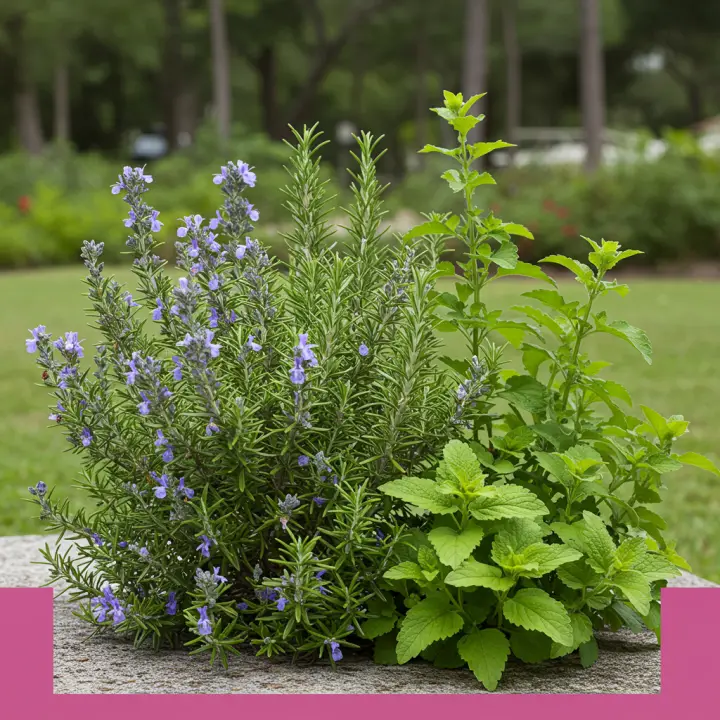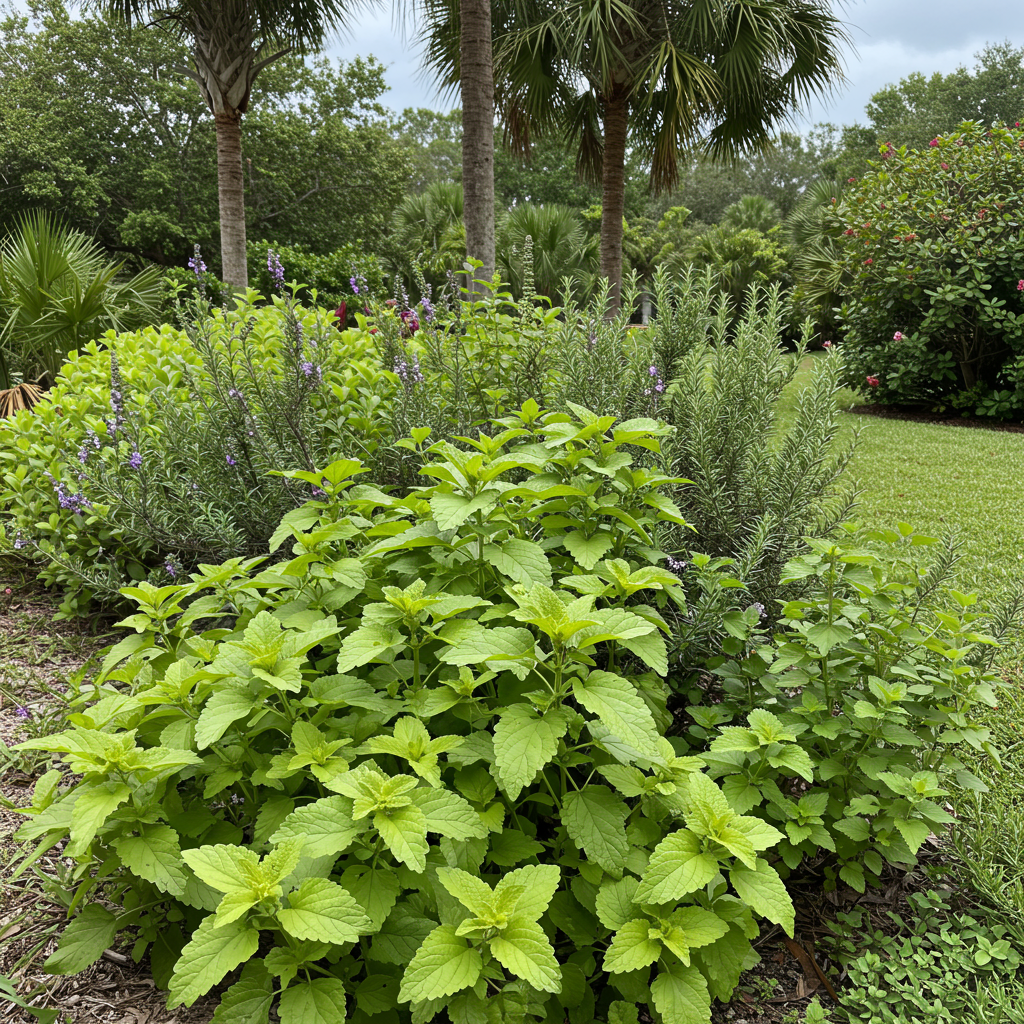Looking for effective, natural ways to keep pests at bay in your tropical garden? Discover the best Insect Repellent Plants Florida homeowners can cultivate to create a more enjoyable, bug-free outdoor space. Our comprehensive guide covers the top choices, their benefits, and how to use them strategically in your Florida landscape.
Florida’s lush landscapes and warm weather are a paradise for many – including an array of insects. From persistent mosquitoes to annoying gnats and other flying pests, they can quickly turn an enjoyable evening on the patio into a swatting battle. While chemical sprays offer a quick fix, many homeowners are seeking more natural, aesthetically pleasing, and sustainable solutions.
Enter the world of insect repellent plants! These botanical wonders naturally produce compounds and essential oils that deter pests, making your garden beautiful and functional. For those living in the Sunshine State, choosing the right insect repellent plants Florida can significantly enhance your outdoor living experience without harsh chemicals.

Why Choose Natural Insect Repellent Plants for Your Florida Home?
Opting for plant-based pest control offers numerous advantages beyond simply warding off bugs:
Eco-Friendly: Reduces reliance on synthetic pesticides, benefiting local ecosystems and beneficial insects.
Safe for People and Pets: While some plants require caution, many are a safer alternative to chemical sprays, especially in areas where children and pets play.
Aesthetic Appeal: These plants aren’t just functional; many are beautiful, fragrant, and can enhance your garden’s design.
Cost-Effective: Once established, they offer continuous pest deterrence with minimal ongoing cost.
Multipurpose Benefits: Many repellent plants also serve culinary purposes, attract pollinators, or offer lovely aromas.
Understanding How Plants Repel Pests
The magic behind insect repellent plants lies in their natural biochemistry. Many plants produce volatile organic compounds – essential oils – as a defense mechanism against herbivores and pests. These compounds can:
Mask attractant odors: They create a scent barrier that overpowers the smell of humans or other host targets, making it harder for insects like mosquitoes to find us.
Act as irritants: The compounds can be unpleasant or irritating to an insect’s olfactory system, causing them to avoid the area.
Contain natural insecticides: Some plants produce compounds that are mildly toxic or disruptive to insects, deterring them from feeding or laying eggs.
The Best Insect Repellent Plants Florida Offers
Integrating these powerful plants into your Florida garden is easier than you think. Here are some of the ultimate choices that thrive in our climate and effectively keep bugs at bay:
Proven Mosquito Deterrents
Mosquitoes are perhaps the most notorious nuisance in Florida. These plants are excellent choices for keeping them away:
Citronella Grass (Cymbopogon nardus): This is the classic! While store-bought citronella candles often contain synthetic versions, the actual grass emits the natural oil that mosquitoes despise. It’s a tall, clumping grass that loves Florida’s sun and humidity.
Lemon Grass (Cymbopogon citratus): Closely related to citronella grass, lemongrass also contains citronellal, which is a powerful mosquito repellent. It’s easy to grow, adds a lovely citrusy scent to your garden, and can be used in cooking!
Catnip (Nepeta cataria): Surprisingly, catnip is a potent mosquito repellent – some studies suggest it’s more effective than DEET. It’s a member of the mint family and quite hardy. While many cats adore it, mosquitoes do not.
Marigolds (Tagetes species): These cheerful annuals release compounds that deter mosquitoes and other garden pests, including nematodes, from the soil. Plant them in pots on your patio or directly in your garden beds.
All-Around Bug Fighters (Mosquitoes, Flies, Gnats)
These versatile plants work against a broader spectrum of common Florida pests:
Rosemary (Rosmarinus officinalis): A fragrant herb that thrives in Florida’s full sun and well-drained soil. Its woody scent is displeasing to mosquitoes, flies, and even some slugs. It’s also a fantastic culinary herb.
Basil (Ocimum basilicum): Various basil types, especially lemon basil or cinnamon basil, are excellent at repelling flies and mosquitoes. Plant basil near your outdoor dining areas or windows. It prefers partial shade in Florida’s intense summer sun.
Mint (Mentha species): Peppermint and spearmint are vigorous growers, making them perfect for containers to prevent them from taking over your garden. Their strong scent deters mosquitoes, ants, and flies.
Lavender (Lavandula species): Known for its calming fragrance to humans, lavender is an unpleasant aroma for mosquitoes, moths, and fleas. Certain varieties, like ‘Phenomenal’ or ‘Goodwin Creek Grey,’ do well in Florida with excellent drainage and sun.
Added Benefits & Specific Pest Control
Geraniums (Pelargonium citrosum ‘Mosquito Shoo’): While often marketed as a specific “mosquito plant,” its effectiveness is debated. However, many scented geraniums (lemon, rose) do release oils that help deter some insects, and they offer beautiful blooms.
Garlic (Allium sativum): While not typically known for its plant form as a repellent for personal space, planting garlic near vulnerable garden plants can deter a range of pests, including aphids and Japanese beetles. The strong odor helps mask other plant scents.
Chrysanthemums: These vibrant flowers contain pyrethrin, a natural insecticide found in many commercial bug sprays. Planting them can help deter fleas, ticks, spider mites, and Japanese beetles.
Important Note on Pennyroyal: While Pennyroyal (Mentha pulegium) is very effective as an insect repellent, especially for fleas, it is highly toxic to humans and pets if ingested. Due to its potential dangers, especially in households with children or animals, we generally recommend choosing safer alternatives from the list above. If you do use it, handle it with extreme caution and ensure it’s inaccessible.
Strategic Placement for Maximum Effectiveness
To get the most out of your insect repellent plants Florida, thoughtful placement is key:
Around Seating Areas: Place potted plants like basil, mint, lavender, or citronella grass directly on your patio, deck, or near outdoor furniture.
Near Entryways: Plant deterrents close to doors and windows to discourage bugs from entering your home.
Borders and Pathways: Create a natural barrier by planting rosemary, marigolds, or lemongrass along garden edges or walkways.
Windward Side: Place plants on the side from which the prevailing wind blows to help carry their repellent scents across your outdoor space.
Crush and Apply (Caution!): For immediate, temporary relief, you can gently crush the leaves of plants like citronella grass, rosemary, or mint and rub them on clothing or exposed skin. Always perform a patch test first to check for skin sensitivity, and avoid contact with eyes. Do not ingest any plant material unless certain it is edible and safe.
Caring for Your Florida Insect Repellent Plants
Most repellent plants are quite hardy, but a little care ensures they thrive and remain effective:
Sunlight: The majority of these plants, especially herbs, prefer full sun (at least 6 hours of direct sunlight daily). However, in Florida’s intense summer heat, some (like basil) appreciate a little afternoon shade.
Soil: Well-draining soil is crucial. Florida’s sandy soils are often suitable, but ensure good drainage to prevent root rot, particularly for lavender and rosemary.
Watering: While established plants are often drought-tolerant, consistent watering, especially during dry spells, will promote healthier growth and better essential oil production. Avoid overwatering.
Pruning: Regularly prune your plants to encourage bushy growth and increase the production of essential oils. This also prevents them from becoming leggy.
* Fertilizing: Most repellent herbs don’t require heavy feeding. A balanced, organic fertilizer applied sparingly during the growing season is usually sufficient.
FAQs About Insect Repellent Plants Florida
Q: How effective are these plants compared to commercial insect sprays?
A: While commercial sprays often offer immediate, potent protection, plants provide a continuous, low-concentration deterring effect over an area. They work best as part of a multi-faceted approach to pest control, especially when used strategically in groups.
Q: Are these insect repellent plants safe for pets and children?
A: Many popular repellent plants like basil, rosemary, and mint are generally safe. However, some, like Pennyroyal, are toxic. Always research specific plants if you have pets or small children who might ingest them. Supervision is always recommended.
Q: Can I bring these plants indoors?
A: Yes, many of these plants, especially smaller herbs like basil, mint, and rosemary, can be grown indoors near a sunny window. They may help deter indoor pests like fruit flies or house flies.
Q: What’s the best way to get started with repellent plants in my Florida garden?
A: Start with a few well-loved, easy-to-grow varieties like citronella grass, rosemary, and basil. Place them strategically around your most frequented outdoor areas (patio, doorways). Observe their effectiveness and expand your collection from there.
Q: Do these plants attract any beneficial insects?
A: While they deter pests, many of these plants, particularly those that flower (like lavender, basil, marigolds), can also attract beneficial pollinators like bees and butterflies, contributing to a healthy garden ecosystem.
Conclusion: Embrace a Naturally Bug-Free Florida Lifestyle
Creating a bug-free oasis in your Florida garden doesn’t require harsh chemicals. By incorporating these beautiful and effective insect repellent plants Florida has to offer, you can transform your outdoor spaces into more enjoyable, welcoming environments. Imagine evenings on the patio, entertaining guests, or simply relaxing in your yard – all with fewer buzzing interruptions. Embrace

